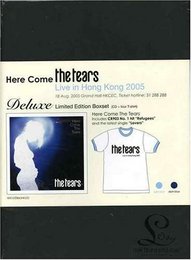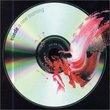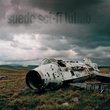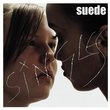| All Artists: Tears Title: Here Come the Tears Members Wishing: 0 Total Copies: 0 Release Date: 9/6/2005 Album Type: Import Genre: Rock Style: Number of Discs: 1 SwapaCD Credits: 1 |
Search - Tears :: Here Come the Tears
 | Tears Here Come the Tears Genre: Rock
|
Larger Image |
CD DetailsSimilar CDs
|
CD ReviewsExcellent albums by the heart of Suede Robert Moore | Chicago, IL USA | 06/05/2007 (5 out of 5 stars) "Bernard Butler's departure from Suede during the final stages of the recording of their flawed masterpiece DOG STAR MAN saw the effective end of one of the great bands of the nineties. They continued, led by lyricist and singer Brett Anderson, beyond Butler's abandonment (supposedly fueled by among other things a far-too-complete embracing of the rock star lifestyle by his band mates), but Butler leaving Suede would be exactly like Keith Richards leaving the Stones, it was like ripping the musical heart out of the band. Whether that signaled the virtual end of the band depends, I suppose, on whether you rate Butler or Anderson as the more crucial of the two main members. I like Anderson, but I consider Butler to be a genius, the greatest, by far, of all the shoe gazer guitarists, an absolute magician with his instrument. Given Butler's highly publicized exit and his well known disdain for Anderson, nothing in the world would have been less expected than Suede's two resident geniuses teaming up for a new album. But in 2005, with the two of them taking the name The Tears, this is precisely what happened. So what is the verdict? Actually, this is amazingly good stuff. Is it a masterpiece along the lines of SUEDE was in fact or what DOG STAR MAN could have been? No. It is merely very good, but sometimes that is more than enough. Neither of the men has lost any performance chops. Anderson is in great voice and Butler remains one of the great guitarists of his generation. Nonetheless, the album lacks a bit of the brilliance of the first two Suede efforts. Part of it might be the result of time. While SUEDE and DOG STAR MAN were haunted, theatrical affairs, the overall tone of this album can only be described as . . . happy. These are not tortured performers. One of the nicer songs on the album, for instance, is about coming to love someone so completely that even their defects are adorable ("Imperfections"). I can imagine some missing the moodiness of the Suede albums. Heck, I miss it. But there is no question that there are some quality songs here. The only reason I can't regard this as highly as their work with Suede is that the album begins to flag some towards the end. Not that the last half is out and out bad. On the contrary, "The Asylum" and "Brave New Century" are strong songs, but not nearly as strong as the best of the first seven cuts. The album starts off with a string of really superb cuts, the first being "Refugees." "Co-Star" is another of the album's many happy songs, or at least one of the not-unhappy songs. Then on to the aforementioned "Imperfections." Cuts 6 and 7 bring the first half of the disc to an end in very, very strong fashion with "Two Creatures" and "Lovers." As I mentioned, Bernard Butler was the main reason I loved Suede so deeply and happily he plays brilliantly throughout this album. If I have ever had a complaint with him it is that he has had in the past a tendency to employ too much dubbing. In listening, for instance, to "Pantomime Horse" from SUEDE it is impossible to figure out just how many guitar tracks are being used. Here he uses maybe 2 or 3 tracks whereas before he might have been using 4 or 5. He still has an unrivaled genius for the invention of irresistible guitar lines, adding texture more brilliantly than any other guitarist that I know. I marvel listening to his playing on "Autograph," where he takes essentially the same guitar line and over the course of the songs turns it inside out and outside in, twisting and turning it every which directions, deconstructing it and reconstructing it. What makes him so brilliant is that he makes what is actually truly difficult sound so easy. There are times when I have wondered whether he might not have the best ear of any guitarist since Hendrix. He certainly is far more sophisticated than the guitarist he emulates, Johnny Marr. If you listen to Marr's work with the Smiths or his current work with Modest Mouse, there will be a lot of resemblance at times between Butler and Marr, but you'll quickly realize that Butler goes to places that not just Marr but no one else can really go. And what is most amazing is that Butler rarely plays the trumpet style parts that we typically think of as guitar solos. Nonetheless, he musically dominates almost every song. In short, while not as brilliant as the first two Suede albums, it is nonetheless definitely better than any of the subsequent Suede albums. It is, in fact, a superb album on every level. It does drag a bit by the end but the first half is so marvelous that this hardly matters. If you love Suede, or if you don't know Suede and just love great music, you will love this album. " Very enjoyable, too bad they didn't get off the ground. Angry Mofo | 07/09/2008 (4 out of 5 stars) "For years since guitarist Bernard Butler left Suede in 1994, fans conjectured about his possible reunion with vocalist Brett Anderson. When it finally happened, in 2005, it was too late for most people to care. The resulting album, Here Come The Tears, didn't sell well (and, reportedly, was poorly promoted), and The Tears were dropped by their record label soon after. But that's not an indication of quality -- this is one of the few reunions that actually adds to the old work, and sometimes even improves on it.
Butler produces consistently great results. That might be a little surprising, since he pretty much dropped off the map after 1994, while Anderson remained famous. But the evidence is clear: if anything, Bernard's abilities have increased. In Suede, he rarely wrote "riffs" as such, he used guitars and keyboards mostly to create moody "soundscapes" for Anderson to sing over. But here, instead of piling on guitar tracks until you can't understand what he's actually playing, he writes distinct, concise guitar hooks. That rising chord progression right before each verse of "Refugees" might be the most elegant guitar line he's ever written. And he's got others that are just as good: the simple but catchy riff in "Autograph," the chugging build-up in "Co-Star" and "Beautiful Pain," the swooning anthemic chords in the outro of "Fallen Idol," and the superb dark grind of "Brave New Century." All of these songs stand up to anything on Suede's first album. Anderson, at least, sounds more inspired here than on latter-day Suede albums. His lyrics use fewer of the worn Suede tropes. And now he attempts to do some honest reflection, which is quite affecting when he's singing about what he knows: the empty feeling left after one has passed the peak of one's fame. "Fallen Idol" conveys this very well. So does "Autograph," one of his all-time best lyrics. It's about lost love, one of his favourite topics, but now he sounds humble, and expresses tired regret, of the non-glamorous kind that doesn't impress girls. Further in the vein of humility, "Co-Star" acknowledges Butler's role in making Anderson famous, and asserts that Anderson can't succeed without his partner. "Lovers" is a typical Suede song about the glory of love, but now Anderson's tone has the kind of innocence that only appears when somebody isn't young anymore, and begins to idealize youth as a carefree time. It's a lot more heartfelt than when a young man flaunts his poetic sorrow in front of the world. But it's not a total creative rebirth. It takes supreme cluelessness to sing the line, "passion creeps like death inside me," and then the line, "we stick like chewing gum," in the same verse. Although the premise of that song ("Imperfection") is kind of sweet -- Anderson's girlfriend isn't perfect, but he still likes her, you see -- you can't help but notice that he's listed a whole bunch of physical imperfections ("you grow your nails too long/the scratches on your arms") as evidence of "the defects in your soul," which is astoundingly shallow. It's probably not what he meant, but still. His attempts to expand his horizons don't always fare well. "Brave New Century" is a bit of social commentary in which Anderson laments the phenomenon of celebrity worship. There are very few people on the face of the earth who would be less suited to make that observation, as Anderson's hunger for fame accounts for much of Suede's success. Good thing Butler is there to save the song with brilliant music. But, on the whole, Anderson's lyrics are unexpectedly good. It's his voice that's in trouble. Anderson used to have the most powerful voice in Britpop, just recall the way he belted out the final notes in "Pantomime Horse." He can't do that anymore. Even in his reduced range, he's on shaky ground. "Two Creatures" in particular makes me wince, the way he strains his voice in the verses. He still pulls off a falsetto in "A Love As Strong As Death," but it's only once at the end, and he sounds like he's trying really hard. However, he does rediscover some of his old theatrical mannerisms. His dramatic intonation on the line, "The Salvation Army...collected your things" in "The Ghost Of You," his husky tone on the lines "You're as dark as the ocean/as cold as the rain" in "Beautiful Pain," and his ominous low notes in "Brave New Century" are all very classy. For what it's worth, his voice did get better on his solo album, so maybe it's not gone for good. I kind of wish they'd ended the album with "The Asylum." Now that would have been a disconcerting ending. The lyrics find Anderson worrying about being put in an insane asylum, and pleading with his friends to stay loyal to him. It's a very atypical subject for him, and he gives a moving performance, which is why I think it would have really been eye-catching as the ender. Unfortunately, the two songs after it are bland -- "A Love As Strong As Death" states that the titular love is desirable, but unlikely, and "Apollo 13" tries to depict a stormy relationship in the verses, only to cop out with the very lazy simile, "Like Apollo 13 we'll explode." You have to give it to the guys -- instead of using the Suede name for easy publicity, they took the hard way by starting a whole new band and building from the ground up, without relying on any old Suede material. And their album was good enough for them to have a chance, but they were unlucky. Had they made the same album sooner, it would have been much more successful. Hopefully they'll have another opportunity, because the overall high quality proves that they were made for each other." |

 Track Listings (13) - Disc #1
Track Listings (13) - Disc #1

